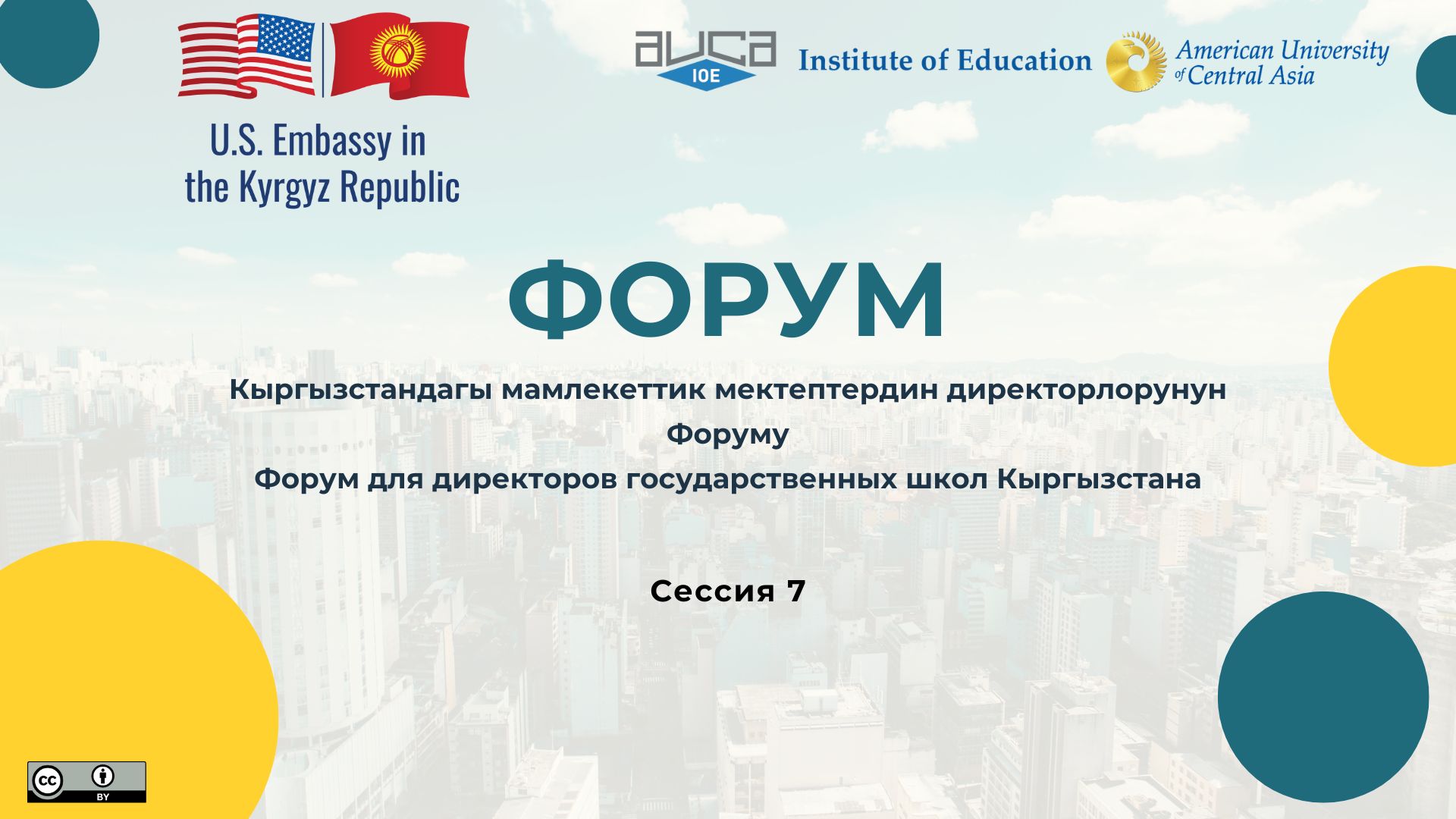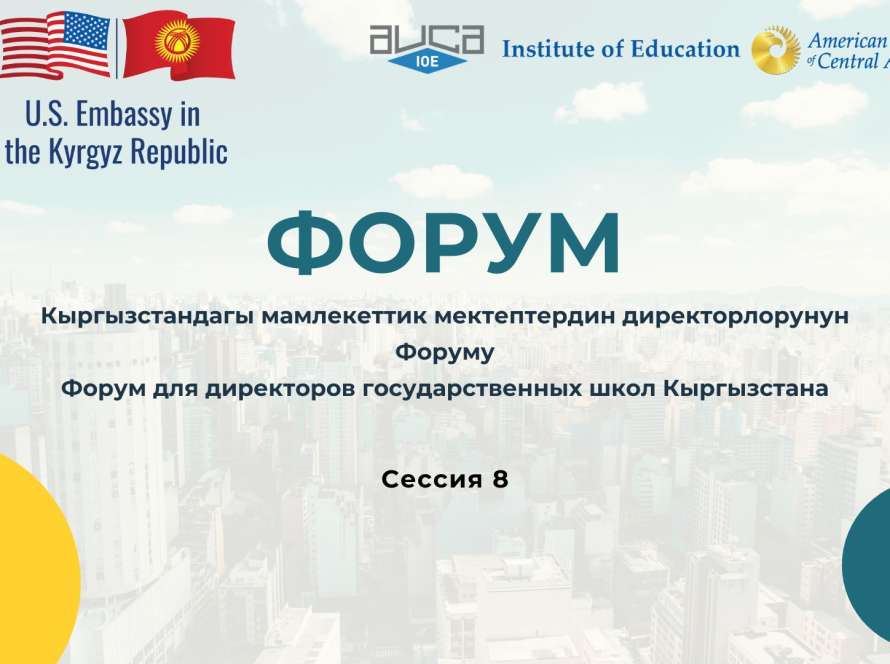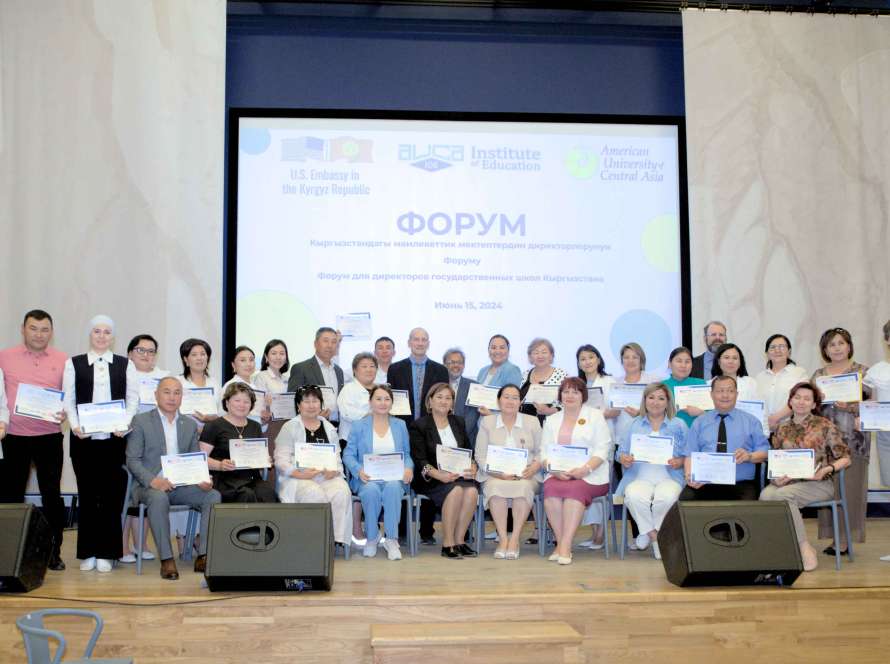Forum for Public School Directors in Kyrgyzstan (FORUM): A Collaborative Space for School Directors to Share Knowledge and Best Practices
Meeting Report Summary: Session on Enhancing School-Community Collaboration. April 13th, 2024
The seventh session of the FORUM convened online, bringing together 30 participants, including 27 public school directors from various regions of Kyrgyzstan, along with two co-conveners and a project coordinator from the Institute of Education. The session commenced with a welcome speech and insights from Jeff Bunting, the Cultural Affairs Officer at the U.S. Embassy in the Kyrgyz Republic. The meeting was also honored by the participation of Gulzat, the Academic Coordinator at the U.S. Embassy. The session focused on strategies for enhancing school-community collaboration.
Key Challenges: Parental and Community Engagement: Parental and community involvement in children’s education is crucial. However, there is a significant lack of interest and communication from parents and community members regarding school life. This disinterest is exacerbated by the low level of education among some parents, leading to challenges in effective child-rearing and collaboration with the school.
Indifference and Financial Barriers: There is a prevalent indifference among parents toward solving important school issues. Financial barriers further hinder participation in extracurricular activities and paid courses, with inconsistent interest from parents regarding additional lessons and educational opportunities.
Socio-Economic and Technological Gaps: The decline in the societal status of teachers, socio-economic challenges faced by families, and lack of modern educational equipment pose significant barriers to effective education. Parental indifference to children’s education and ignorance about school activities are additional challenges that need addressing.
Strategic Actions: Community and Parental Collaboration: Enhancing cooperation between schools, parents, and the local community is essential. Strategies include organizing seminars, courses, parent-teacher meetings, and community events to foster better communication and engagement. Implementing feedback mechanisms, volunteer programs, and providing resources and information on learning development programs are critical steps.
Public and Community Involvement: Collaboration with community representatives, such as the “Council of Elders” and “Women’s Council,” is vital. Programs like “Mothers’ School” and “Girls’ Council” should be organized, with regular public updates on school successes. Involving students, parents, and the community in project implementation and enhancing transparency through social media and open house days are effective strategies.
Resource and Technological Enhancements: Modern educational equipment, including laboratories for chemistry and biology lessons, and improved technological integration in schools are needed. Raising the status of teachers and securing financial support for educational improvements are essential for creating a conducive learning environment.
Resource Needs: Parental and Community Interest: Increasing interest from parents and the community in school life is necessary. Effective communication and collaboration strategies, involving parents in educational activities, and providing them with resources and support are crucial for improving engagement.
Safety and Support: Implementing video surveillance to prevent crime, gaining better support from local businessmen, and overcoming negative perceptions and misinformation about the school are important steps for enhancing school safety and community support.
Technological and Financial Support: Addressing the urgent need for modern educational equipment, improving technological integration, and ensuring adequate financial support for educational enhancements are vital for the overall development of the school environment.
Conclusion and Next Steps: Reflecting on the session, the need for continued collaboration among school directors to tackle the identified challenges and implement the proposed strategies is evident. Creating a favorable environment for learners remains central to the mission of the FORUM. Future sessions will build on the insights gained, with a strong emphasis on enhancing the educational experience in Kyrgyzstan’s public schools. The co-conveners and program coordinators thanked the participants for their contributions and outlined the next steps for future sessions, reinforcing the commitment to this mission.



